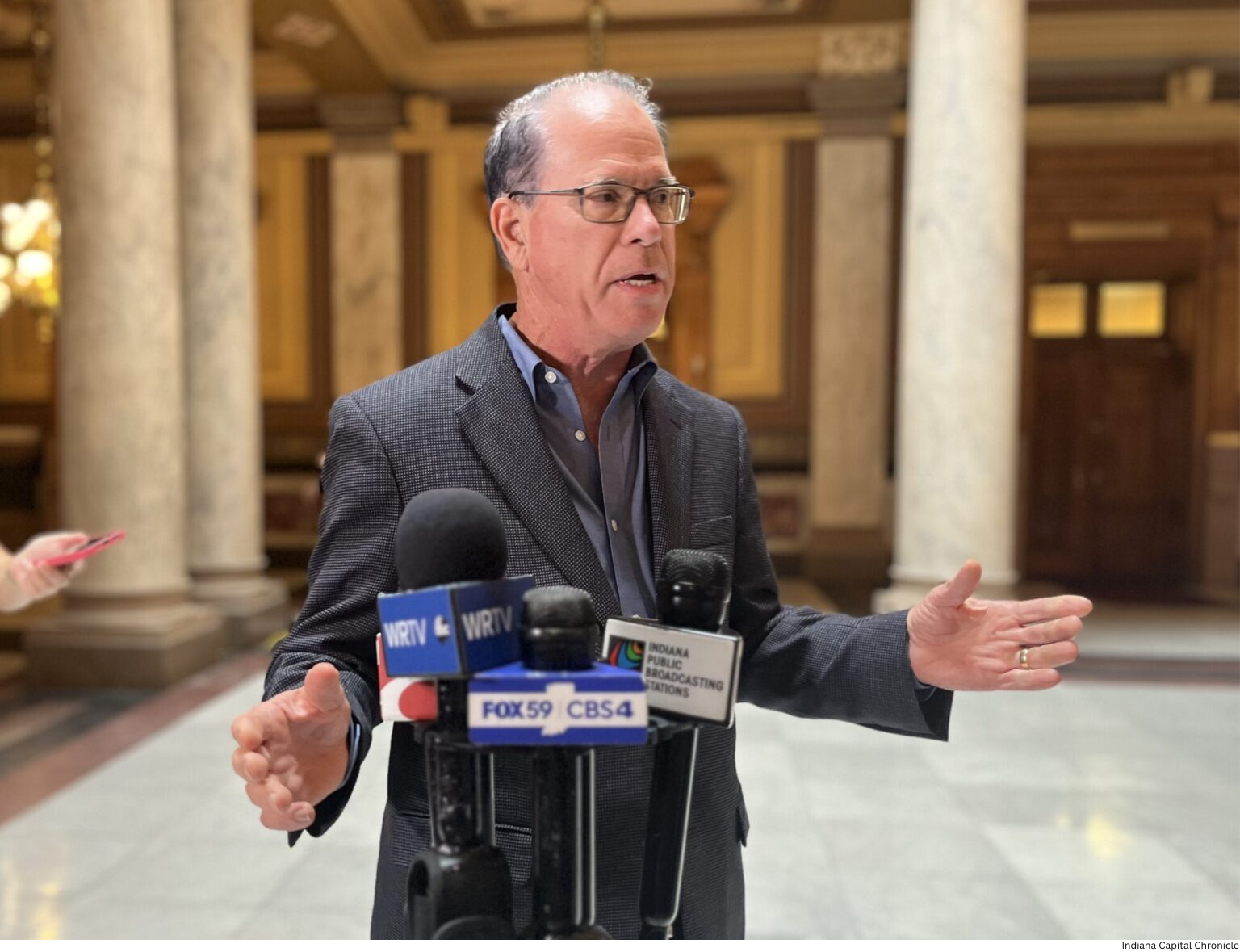Indiana’s political landscape is set for a dramatic shake-up after Governor Mike Braun announced on Monday that he is calling a special session of the state legislature to redraw congressional district maps. The move follows weeks of growing controversy, court scrutiny, and public outcry over the fairness of the state’s current district boundaries — maps that critics argue heavily favor Republican incumbents and dilute the voices of urban and minority voters.
In his announcement, Braun framed the decision as a necessary step toward “ensuring the integrity and transparency” of Indiana’s electoral process. “The people of Indiana deserve maps that are fair, representative, and constitutionally sound,” the governor said in a press release. “We will work with legislative leaders to correct any issues raised by the courts and restore public confidence in the process.”
The decision comes after a three-judge federal panel ruled that parts of the state’s congressional map may violate the Voting Rights Act and the Equal Protection Clause of the U.S. Constitution. The ruling stopped short of ordering immediate changes but strongly suggested that lawmakers take corrective action before the 2026 election cycle. In the wake of that decision, advocacy groups and legal experts have urged the state to act swiftly to avoid chaos in upcoming races.
By calling a special session, Braun has set the stage for what could become a heated political showdown at the Indiana Statehouse. Both parties are preparing for a battle over how the new lines will be drawn — a fight that could reshape the state’s political future for the next decade.
Republican leaders, who currently hold supermajorities in both legislative chambers, have expressed confidence that they can produce new maps quickly and lawfully. House Speaker Todd Huston said in a statement that the legislature “respects the court’s decision” and will “move forward in good faith.” However, Democrats remain skeptical, arguing that the same Republican-dominated process that produced the current maps cannot be trusted to deliver a truly fair result.
“This is a chance to correct a grave injustice,” said State Rep. Cherrish Pryor (D-Indianapolis). “But it will only matter if we actually listen to the people of Indiana — not the politicians drawing the lines to protect themselves.”
The issue of gerrymandering — the practice of drawing legislative districts to favor one party — has long been contentious in Indiana. Critics say the current congressional map, adopted in 2021, was engineered to lock in Republican control of seven of the state’s nine congressional seats, despite Democrats routinely earning around 40% of the statewide vote. Advocacy groups like Common Cause Indiana and the League of Women Voters have led the charge in challenging the maps, calling for a more independent, transparent redistricting process.
Public frustration has also been mounting. Over the past month, town halls and community forums across the state have drawn large crowds demanding fairer representation. “This isn’t about Republicans or Democrats,” said Angela Torres, a community organizer from Fort Wayne. “It’s about giving every voter a voice that counts equally.”
For Governor Braun, the special session is not just a procedural move — it’s a political gamble. A first-term Republican governor with close ties to the state’s conservative base, Braun has built his reputation on fiscal restraint and skepticism of government overreach. Calling lawmakers back to the Statehouse for an expensive and politically charged redistricting session could expose him to criticism from both sides.
Some Republican strategists privately worry that reopening the redistricting process could risk losing seats in competitive districts, particularly in suburban areas where demographics are shifting. Democrats, meanwhile, see an opportunity to make gains if they can push for more compact, community-based maps.
Adding to the tension, outside groups are already mobilizing to influence the outcome. National organizations like the Princeton Gerrymandering Project and RepresentUs have pledged to monitor Indiana’s redistricting process closely, while state-level advocacy coalitions are preparing to submit alternative map proposals for public review.
Legal experts note that Indiana’s situation mirrors similar redistricting battles playing out nationwide. In recent years, courts in states such as Alabama, North Carolina, and Louisiana have ordered legislatures to redraw maps found to be racially or politically biased. These cases have highlighted the ongoing national struggle over how to balance partisan interests with constitutional protections for voters.
“This is part of a broader reckoning,” said Dr. Matthew Ellis, a political science professor at Indiana University. “The courts are increasingly signaling that extreme gerrymandering — even if technically legal — undermines democracy. What happens in Indiana could have ripple effects across other states.”
The timeline for redrawing the maps remains tight. Governor Braun’s proclamation requires lawmakers to convene within 30 days, and insiders say legislative committees are already meeting with legal counsel and demographers to prepare drafts. The special session is expected to feature public hearings, though critics question how transparent the process will actually be.
As the political battle intensifies, the stakes could not be higher. Indiana’s redistricting outcome will determine not just who represents the state in Congress but also how competitive its elections will be for years to come. Fairer maps could energize voter turnout and increase accountability, while another round of partisan gerrymandering could deepen cynicism and entrench political divides.
For now, Governor Braun is trying to strike a tone of bipartisanship. “This is an opportunity to get it right,” he said. “Hoosiers should have faith that their voices matter and that their votes carry equal weight, no matter where they live.”
But whether that promise holds true will depend on how the legislature handles the weeks ahead — and whether the final maps reflect fairness or political self-interest.
As Indiana braces for its redistricting showdown, the nation will be watching closely. The outcome could serve as both a test case and a warning for states still navigating the contentious politics of drawing democracy’s lines.
%20(4).png)








